What’s the best flour for cookies? From wheat flour to cake flour, there are so many different options to choose from. So, let’s dive in so you can sink your teeth into the most delicious cookies ever!
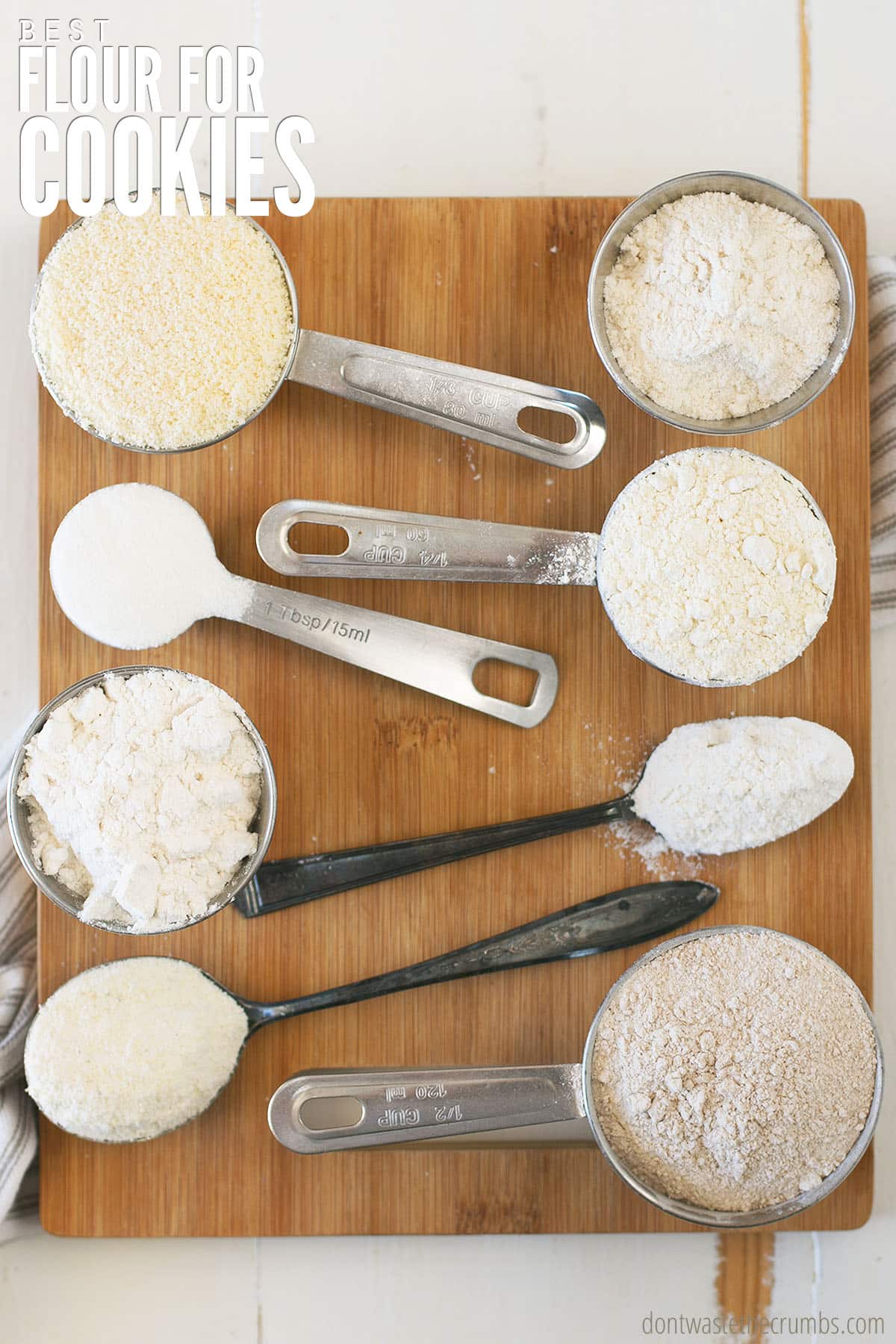
There’s not much I wouldn’t do for a freshly baked cookie right out of the oven. Those crisp, golden brown edges with chewy, gooey insides that melt in your mouth with each bite are pure bliss. Now that I’ve got you drooling, it’s time to talk about the best flour for cookies.
I’ve tried several different flours for making cookies, and let me tell you, it all comes down to science. Cookie science, that is! Different types of flour can affect your cookies and their shape, size, texture, and taste! In this post, I’m going to break down each type of flour and its effect on cookies, how gluten affects cookies, and share the type of flour that is my new personal favorite!
THE DIFFERENT KINDS OF FLOUR
All-Purpose Flour (Bleached)
All-purpose flour is the classic cookie flour. In fact, you probably have some in your kitchen right now! This type of flour is perfect for all kinds of recipes, from whipping up classic chocolate chip cookies to banana muffins to baking a delicious loaf of bread; all purpose flour has got you covered! What makes this type of flour stand out amongst others is its protein content. It has a moderate protein content that helps balance the chewiness and tenderness in your baked goods. The bleached variety has a slightly lighter texture and is often preferred for recipes that call for a lighter crumb.
Find all the nutritional facts about flour here in the USDA Food Data Central.
All-Purpose Unbleached Flour
Unbleached flour is a more natural alternative to bleached flour because it goes through a minimal refining process, unlike bleached flour. It’s a great option for those looking for more wholesome options! Unbleached flour is also great for making baked goods because it has similar properties to all-purpose flour. The only difference is it has a slightly higher protein content, which may lead to a chewier texture in your cookies and yeast breads.
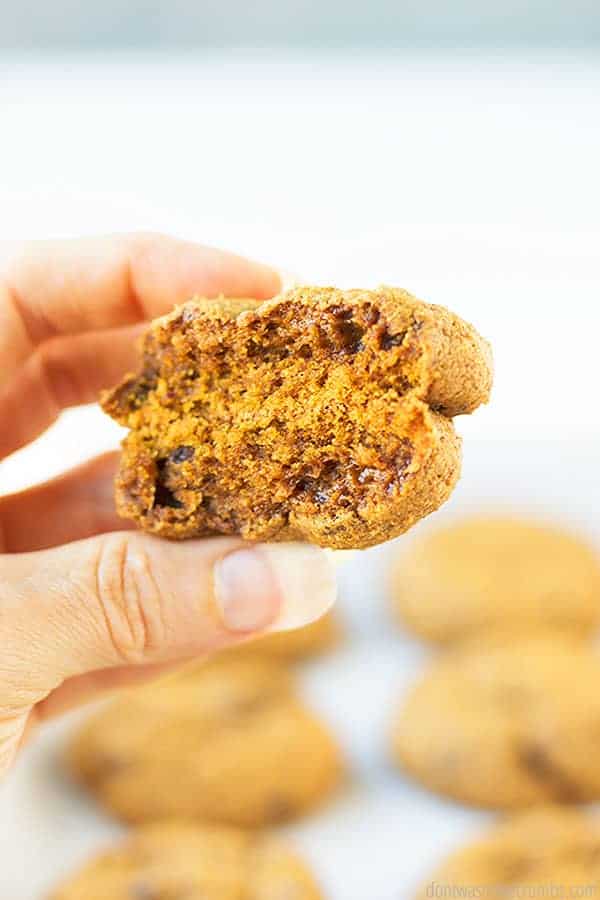
Whole Wheat Flour
Whole wheat flour is made by grinding the entire wheat kernel. As a result, it has a more robust flavor and added nutrients. Whole wheat is a popular flour for making bread as it has a heavier, denser texture than all-purpose flour. There are two types of whole wheat flour – whole wheat and white wheat. Whole wheat flour contains the bran, germ, and endosperm of the wheat kernel, providing health benefits and higher fiber content. White wheat flour is milder in flavor and color, making it a preferred choice for those who want the benefits of whole wheat without the stronger taste.
White Whole Wheat Flour
White whole wheat flour is one of my new favorites for baking cookies! Unlike whole wheat flour, white whole wheat is made from soft white wheat, as its name suggests. It’s still soft wheat flour, meaning it has all the same nutritional benefits as whole wheat flour but with a slightly milder flavor and lighter color.
Bread Flour
If you’ve ever made bread or pizza dough before, chances are you’ve used bread flour. Bread flour is known for its high protein content, which yields a chewy and elastic texture due to the gluten formation. This type of flour is perfect for yeast-based recipes like bread and dough because the extra strength of its protein helps the bread to rise and provides structure.
Self-Rising Flour
Unlike other types of flour, self-rising flour already contains a leavening agent, baking powder, and a pinch of salt. As a result, you don’t need to add those things when you’re baking, saving you time on recipes that require a light and fluffy texture like buttery biscuits!
Cake Flour
Cake flour is most widely used for baking tender cakes like angel food cake and sponge cake because of its low protein content. Because it has a lower protein content than all the flours, your baked goods come out delicate and fluffy! Cake flour is also finely milled and often undergoes a bleaching process to achieve its desired texture. Pastry flour is similar to cake flour, but has more protein content.
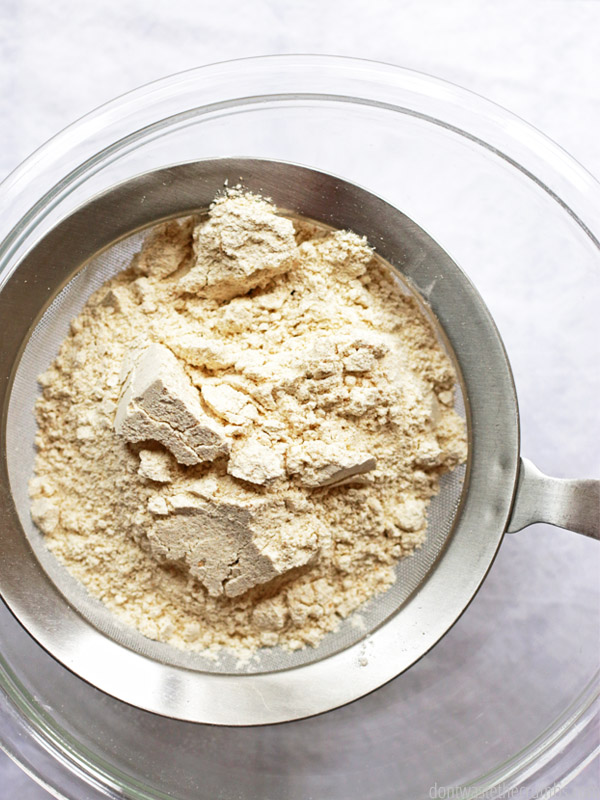
HOW DOES THE TYPE OF FLOUR AFFECT COOKIES?
All-Purpose Flour (Bleached)
This flour is typically the go-to for making cookies. Its balance of protein and starch results in chewy cookies with a moderate texture and soft interior.
Unbleached Flour
If you’re looking for a slightly chewier cookie, unbleached flour will be your best bet. Its slightly high protein content lends to cookies with a more substantial and rustic appearance.
Whole Wheat Flour
With a higher protein and fiber content, whole wheat flour yields a denser and heartier cookie. It also adds a nutty and robust flavor which some may prefer over traditional all-purpose flour. However, using a blend of whole wheat and all-purpose flour is best for better results.
White Whole Wheat Flour
I think white whole wheat flour is the best flour for cookies because of its versatility. You can easily swap it for all-purpose flour or whole wheat flour in many recipes. Plus, it adds a wholesome touch to cookies like whole wheat flour but with a more tender texture.
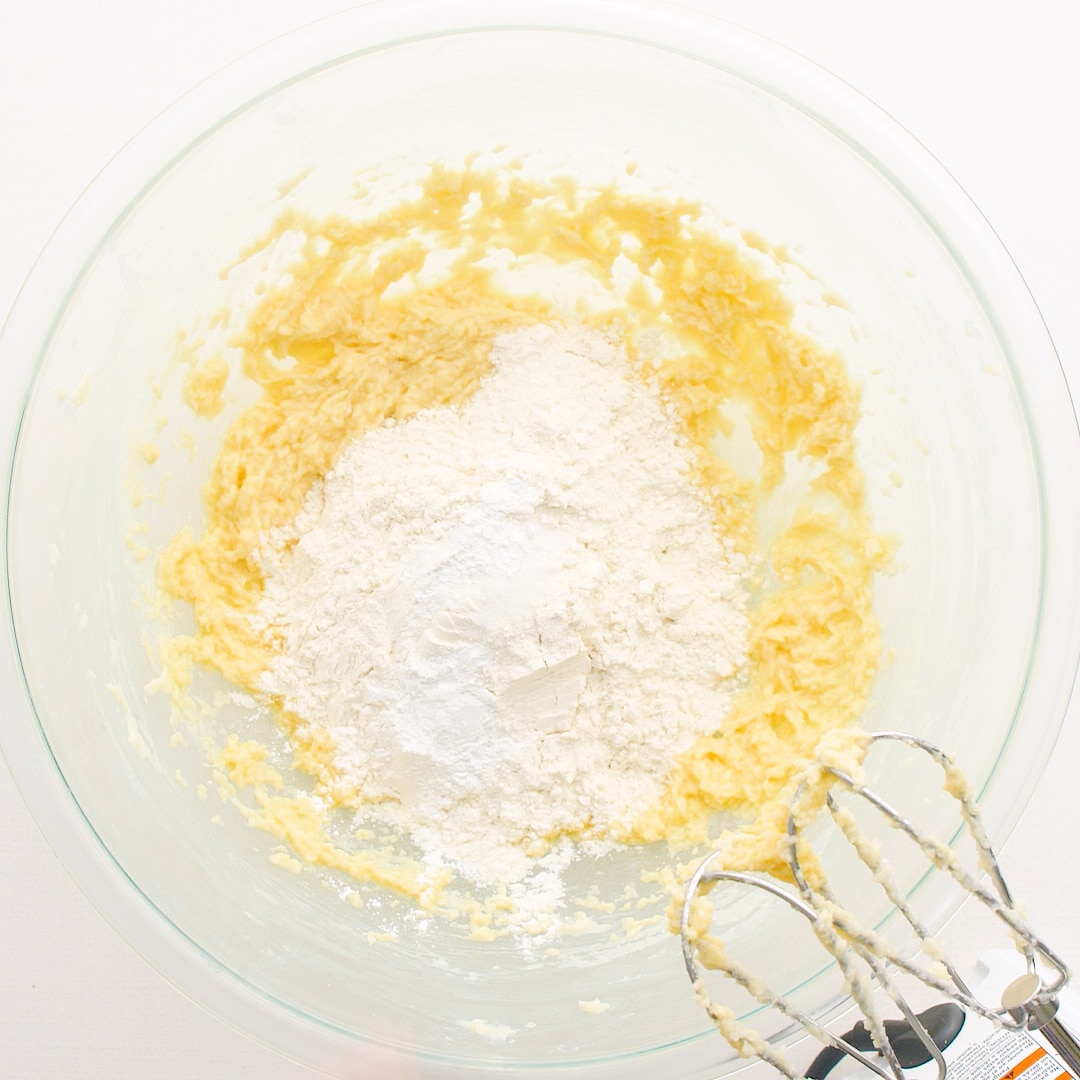
Bread Flour
Bread flour has a high protein content, which may result in cookies with a chewy texture. It provides more structure than other flours and can give cookies that satisfying, bread-like bite.
Self-Rising Flour
If you like more cake-like cookies, you’ll love using self-rising flour. With its leavening agent, it produces cookies with a lighter texture and fluffier consistency. Plus, the salt in the flour helps enhance the sweetness of other ingredients.
Cake Flour
Use cake flour if you prefer cookies with a delicate and tender texture. Because of its low protein content, it produces light and soft cookies.
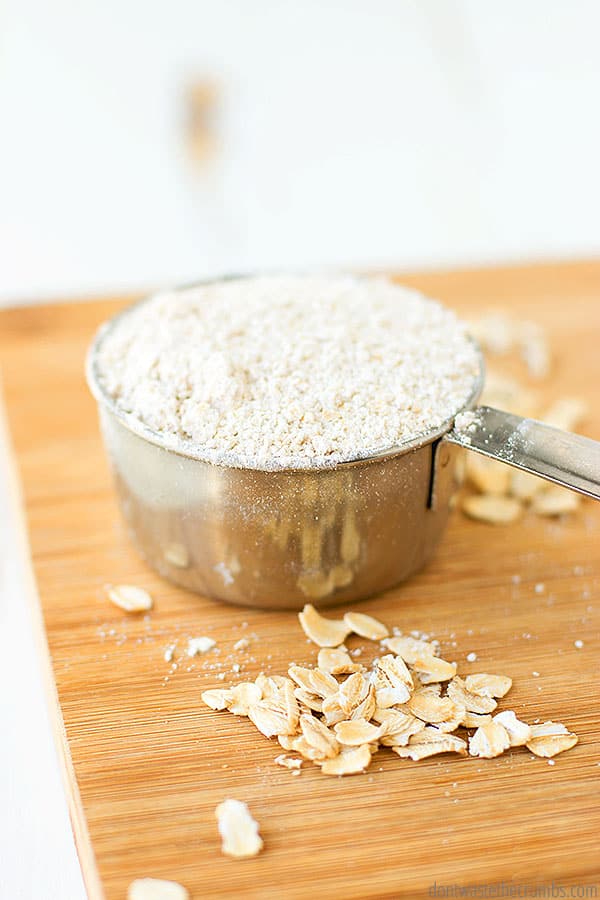
GLUTEN-FREE COOKIES
All of the flours mentioned above contain gluten. This is what gives cookies their chewy light texture. If you need gluten-free cookies, simply swapping for a gluten-free flour might not be the best flour for cookies if you want your baked treat to actually taste like a cookie.
Coconut flour, almond flour, oat flour, and even gluten free flour blends should be used with a recipe calling for those flours. I love this Dark Chocolate Chip Almond Cookie and this Peanut Butter Oatmeal Cookie. Both are made without wheat flour!
I will say you can make most cookie recipes with a 1-1 gluten free baking mix (like Bob’s Red Mill) without many problems. However, be aware that it won’t bake exactly like wheat flour.
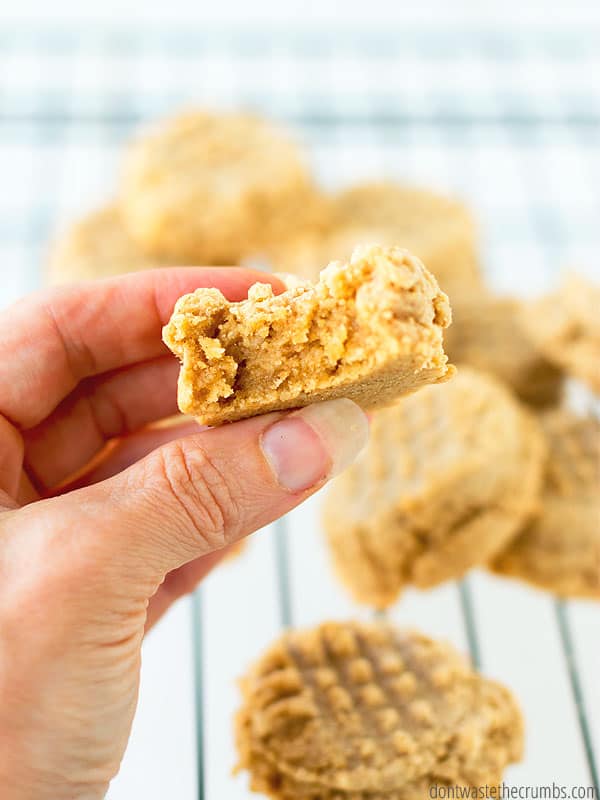
THE BEST FLOUR FOR COOKIES
Now you’re armed with all the knowledge you need to craft the perfect cookie! Whether using all-purpose flour, bread flour, or whole wheat flour, there’s no shortage of ways to customize your cookies to get the perfect texture and flavor you desire! So, grab your flour of choice and bake the best batch of cookies you’ve ever made!
- The Best Chocolate Chip Cookie Recipe
- Healthier Sugar Cookies
- Peppermint Candy Cane Cookies
- Gingersnaps Cookies
- Cranberry White Chocolate Chip Cookies
- Healthy Thumbprint Cookies
- Peanut Butter Chocolate Chip Cookies
- Snickerdoodle Cookies
- Pumpkin Chocolate Chip Cookies
- Shortbread Cookies
- Chewy Oatmeal Chocolate Chip Cookies
- Molasses Breakfast Cookies
- Pumpkin Cookies With Naturally Sweetened Cream Cheese Frosting


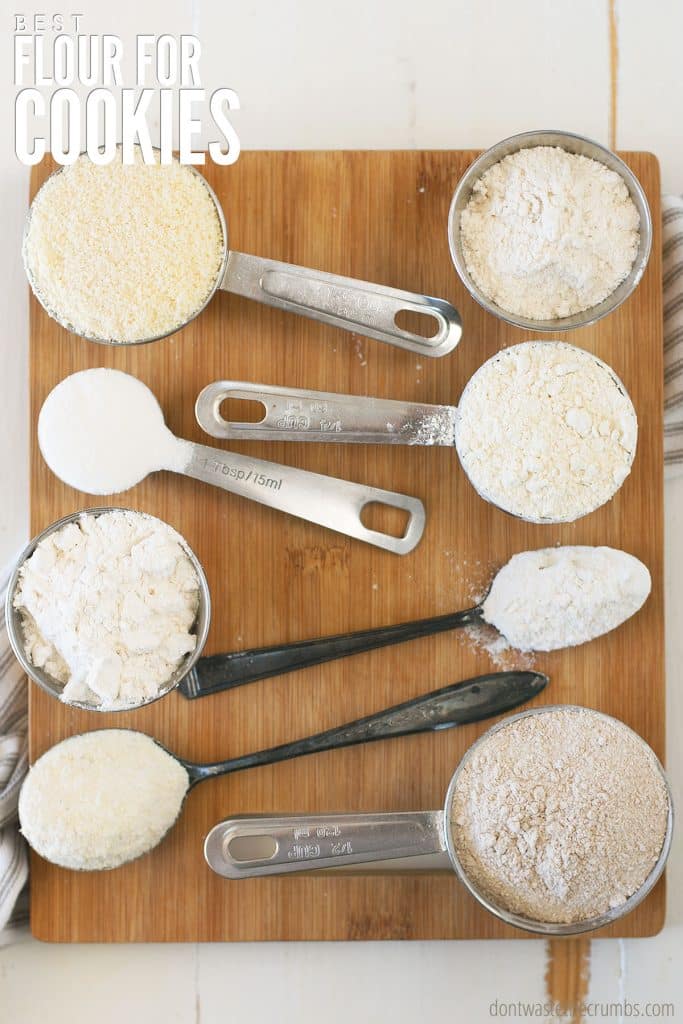
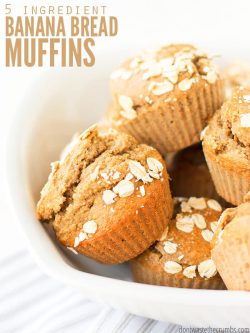
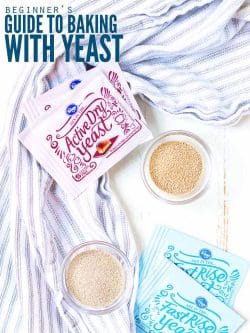
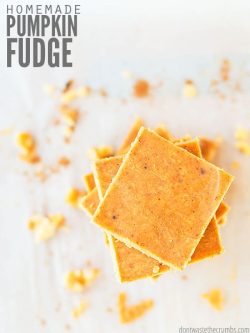
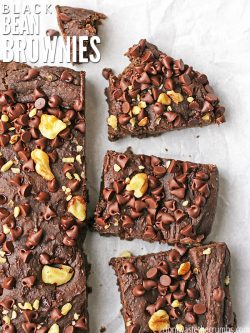

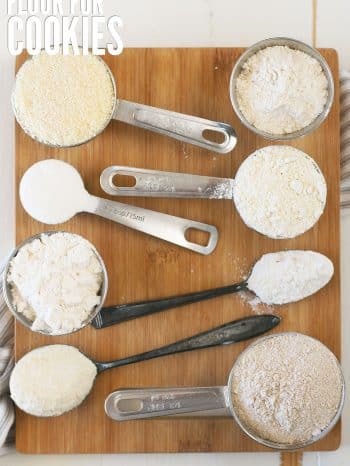
Super helpful thank you!